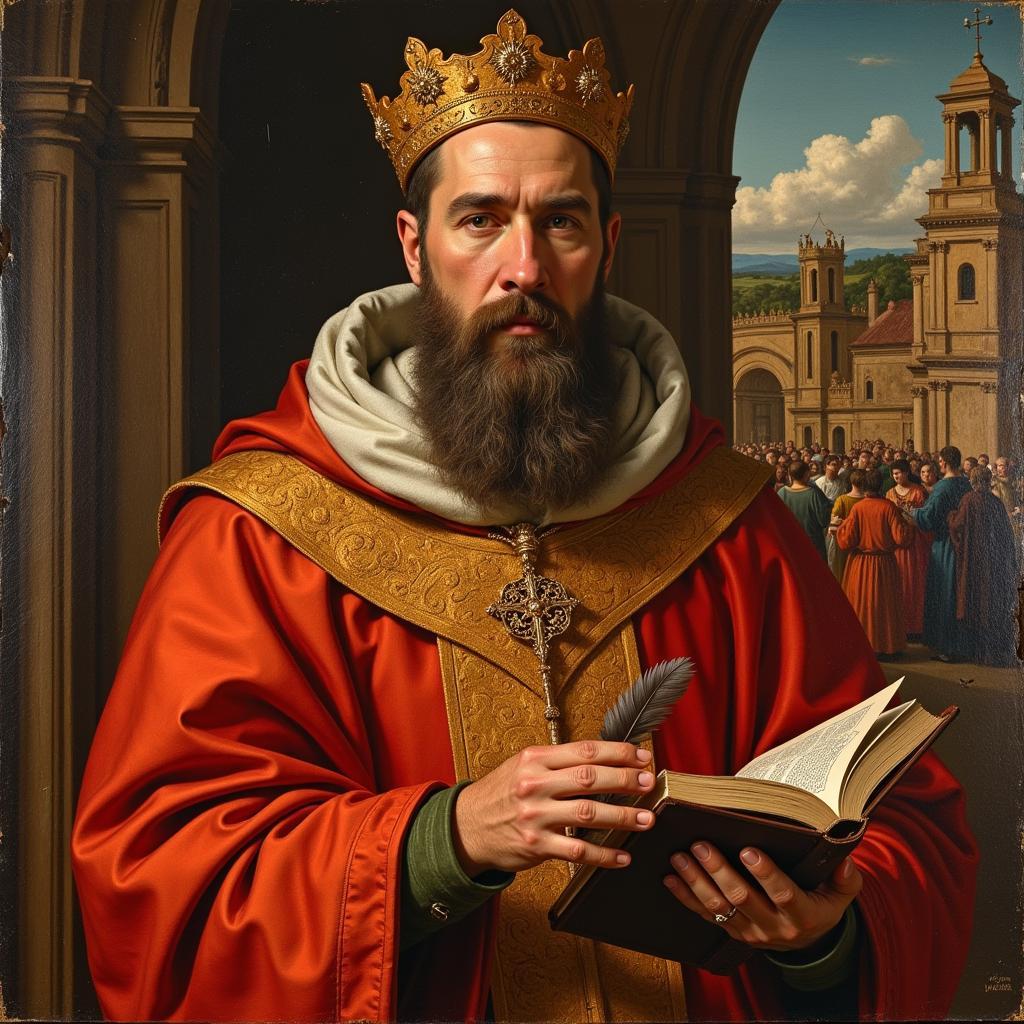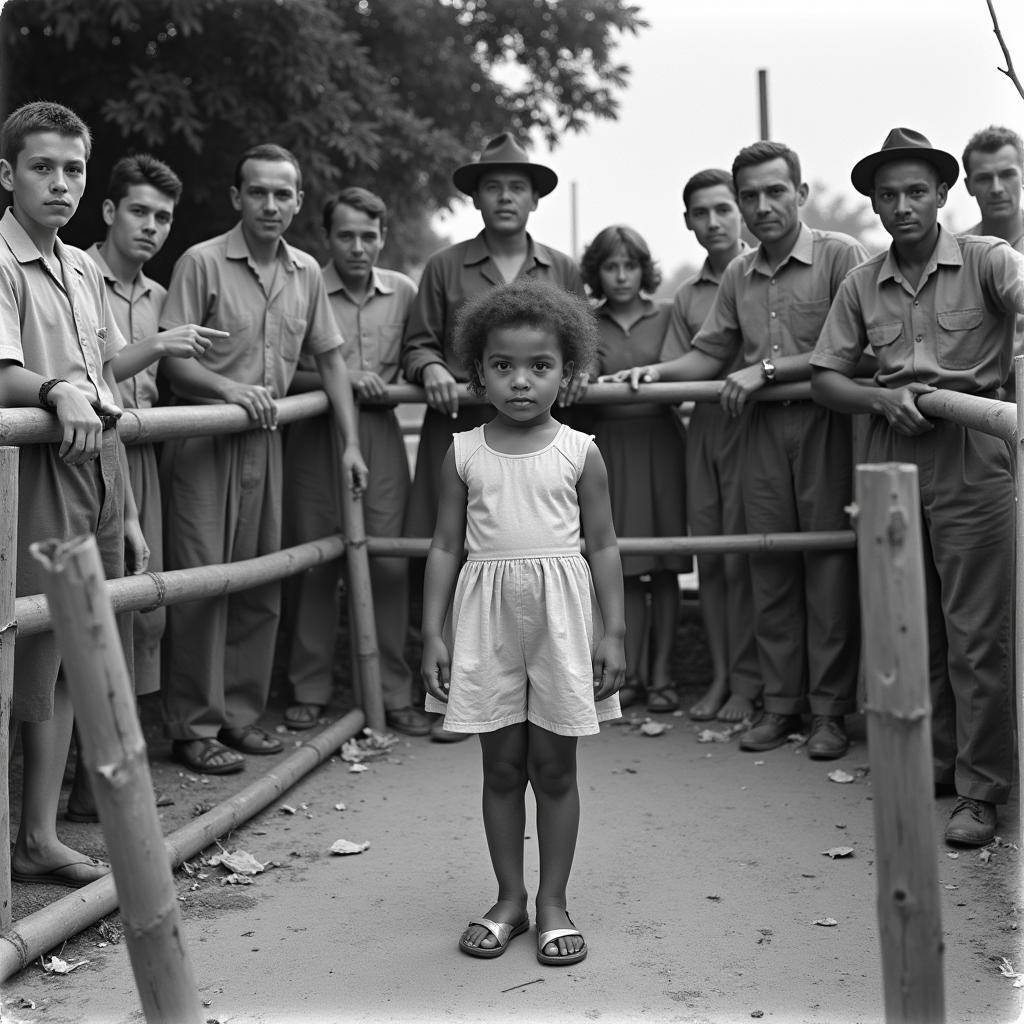Exploring the Legacy of the African Church Fathers
The African Church Fathers, pivotal figures in early Christianity, shaped theological discourse and left an enduring impact on the development of the faith. From the sands of North Africa to the bustling cities of the Roman Empire, these intellectuals and spiritual leaders challenged prevailing doctrines, defended orthodoxy, and offered unique perspectives rooted in their African context. This article delves into their lives, writings, and lasting contributions to Christian thought.
The North African Crucible: A Breeding Ground for Theological Giants
The fertile intellectual landscape of North Africa, particularly in regions like Carthage and Alexandria, proved to be a crucial incubator for early Christian thought. These vibrant centers of learning fostered rigorous debate and intellectual exchange, giving rise to some of the most influential figures in the early Church. Here, amidst the clash of cultures and ideas, the African Church Fathers emerged as powerful voices shaping the future of Christianity. The geographical and cultural setting played a significant role in shaping their theological perspectives.
One of the earliest and most significant of these figures was Tertullian, a Carthaginian lawyer who converted to Christianity in the late 2nd century. Known for his fiery rhetoric and staunch defense of Christian doctrine against pagan criticisms and heresies, Tertullian is credited with coining many theological terms still used today. His writings addressed issues ranging from the Trinity to the sacraments, laying the groundwork for future theological development.
Shortly after Tertullian, another towering figure emerged: Cyprian, the Bishop of Carthage. A skilled orator and administrator, Cyprian played a critical role in navigating the tumultuous period of the Decian persecution. His writings on the unity of the Church and the role of the bishop were instrumental in shaping ecclesiology, the study of church structure and organization.
Following this link to learn more about the influence of African culture on early Christianity: African influence on early christianity.
Augustine of Hippo: A Colossus of Christian Thought
Perhaps the most renowned of the African Church Fathers is Augustine of Hippo. Born in present-day Algeria, Augustine’s intellectual journey, marked by a dramatic conversion experience, led him to become one of the most prolific and influential theologians in Christian history. His monumental works, such as Confessions and The City of God, explored profound questions about human nature, grace, and the relationship between the earthly and the divine. Augustine’s theological contributions, particularly his articulation of the doctrines of original sin and predestination, have had a profound and lasting impact on Western Christianity.
 Portrait of Augustine of Hippo
Portrait of Augustine of Hippo
Beyond Augustine: Exploring Other Key Figures
While Augustine’s influence is undeniable, it’s crucial to recognize the contributions of other African Church Fathers who enriched the tapestry of early Christian thought. Figures like Lactantius, known as the “Christian Cicero” for his elegant prose, and Optatus of Milevis, who wrote against the Donatist schism, further demonstrate the depth and breadth of intellectual activity within the North African Church. These individuals, though less widely known than Augustine, played significant roles in shaping the theological landscape of their time.
What were the social structures like during this period? This article about African American family roles might offer some parallels: African American family roles.
The Enduring Legacy of the African Church Fathers
The impact of the African Church Fathers extends far beyond the early centuries of Christianity. Their writings continue to be studied and debated by theologians and scholars today, shaping contemporary understandings of key Christian doctrines. Their emphasis on scriptural interpretation, their engagement with philosophical ideas, and their responses to the challenges of their time offer valuable insights for Christians navigating the complexities of faith in the modern world. They laid the foundation for much of Christian doctrine and practice, and their legacy continues to inspire and challenge believers today.
 Ancient Manuscripts of the African Church Fathers
Ancient Manuscripts of the African Church Fathers
Who Were Some Key African Church Fathers?
Some of the most prominent African Church Fathers include Tertullian, Cyprian, Augustine of Hippo, Lactantius, and Optatus of Milevis.
What Were Their Main Contributions?
Their contributions ranged from shaping doctrines like original sin and predestination (Augustine) to defending orthodoxy against heresies (Tertullian) and addressing practical issues of church governance (Cyprian).
Why Are They Important to Study Today?
Studying the African Church Fathers provides valuable insights into the development of early Christian thought and the challenges faced by the early Church. Their writings continue to be relevant for contemporary theological discussions.
Looking for inspiring sermons? You might find these African American Father’s Day sermons relevant: African American father’s day sermons.
Conclusion
The African Church Fathers, a diverse group of intellectuals and spiritual leaders, played a crucial role in shaping the course of Christian history. From Tertullian’s fiery rhetoric to Augustine’s profound theological reflections, their contributions continue to resonate within the Christian tradition. Exploring their lives and writings provides a deeper understanding of the rich tapestry of early Christian thought and the enduring legacy of the African Church Fathers.
FAQ
- Who is considered the most influential African Church Father? Augustine of Hippo is widely regarded as the most influential.
- What language did the African Church Fathers write in? Primarily Latin and Greek.
- What were some of the key theological debates they engaged in? The nature of the Trinity, the relationship between grace and free will, and the nature of the Church.
- Where did most of the African Church Fathers live? Primarily in North Africa, in regions like modern-day Tunisia and Algeria.
- Are their writings still relevant today? Yes, their writings continue to be studied and offer insights into the development of Christian thought.
Exploring further
You might also be interested in exploring the roles of women in early Christianity, or the impact of early Christianity on African societies.
When in need of support, please contact us at Phone: +255768904061, Email: [email protected] Or visit our address: Mbarali DC Mawindi, Kangaga, Tanzania. We have a 24/7 customer support team.



